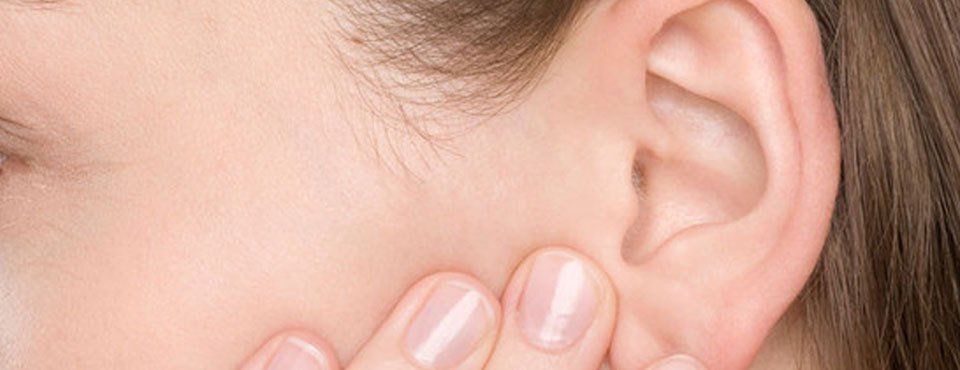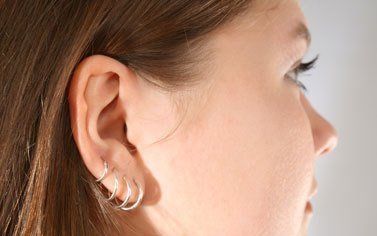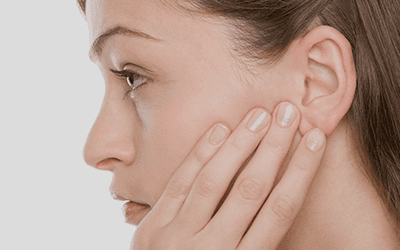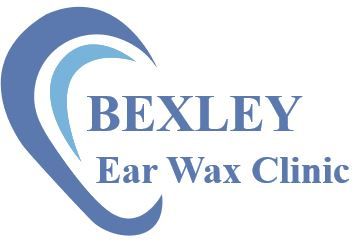
Expert tinnitus services in Bexley and the surrounding areas
Hearing protection is essential to preventing hearing loss and tinnitus. Bexley earwax clinic in Bexley can help. Contact us today.
What is tinnitus?
Tinnitus is the term used to describe noises heard in the ear or ears, it comes from the Latin word for 'ringing' and is the perception of sound in the absence of any corresponding external sound. This noise may be heard in one ear, in both ears or in the middle of the head or it may be difficult to pinpoint its exact location. The noise may be low, medium or high pitched. There may be a single noise or two or more components. The noise may be continuous or it may come and go.
Tinnitus is not a disease or an illness, it is a symptom generated within a person's own auditory pathways. Although it is often assumed that tinnitus occurs as a result of disease of the ears, this is often not the case. The precise cause of tinnitus is still not fully understood. As we hear with the brain rather than the ear (the function of the ear is to pick up vibration and convert it to electro-chemical impulses) it is not surprising that the brain is central to both the perception of, and our reaction to, the tinnitus signal. In this way the brain is also central to the successful management of tinnitus.

Who gets tinnitus?
Experiences of tinnitus are very common in all age groups, especially following exposure to loud noise; however, it is unusual for it to be a major problem. There is a widely held misconception that tinnitus is confined to the elderly, but various studies have shown that it can occur at any age, even in quite young children. Mild tinnitus is common and about 10 per cent of the population have it all the time and, in up to one per cent of adults, this may affect the quality of their life.
What to do if you think you have tinnitus?
Tinnitus is rarely an indication of a serious disorder, but it is wise to see your doctor if you think you might have it. Should something treatable be causing it, you may be referred to a specialist.
Try not to worry
If you have been told there is nothing you can do about tinnitus, that it is untreatable, then you have been misinformed. The most important fact to remember is that you have the ability to reduce the effects of it and in some cases silence the tinnitus altogether!
The noises may seem worse if you are anxious or stressed. When tinnitus starts, particularly if it's sudden, you may naturally be frightened and your concentration or your sleep may be disturbed.
You will probably feel better when you find out more about the condition that it's very common and you're not alone.
Many people say they notice tinnitus less when they are doing something. Keeping your mind occupied helps (but don't overdo things). If the noises seem louder at quiet times, particularly during the night, it may help to have soothing music or some other environmental or natural sound quietly on in the background.
Practising different forms of relaxation such as meditation and yoga can be very helpful. Taking time out for yourself is important to help reduce levels of stress.

What are the causes?
Tinnitus may start suddenly or have a gradual onset. It may be related to noise exposure, colds, ear wax, syringing or surgery. It may be related to trauma, whiplash or changes in hearing, perceived or not. Sometimes tinnitus is a side effect of medication, the most common being aspirin but usually only when taken in high doses. If you think a prescription medication may be causing or aggravating your tinnitus, ask your doctor about it.
Noise induced hearing loss and hearing protection
There is a very strong relationship between tinnitus and hearing loss caused by prolonged exposure to loud noise. Loud noises above 85dB can cause damage to the inner ear. This damage is permanent and will generally effect the higher frequencies. The resulting hearing loss means that the brain has to work harder to suppress the tinnitus noise and so in quieter environments the tinnitus will be heard more easily. To prevent this from happening in the first place, I work very closely with Ultimate Hearing Protection, a well-established, company that specialises in hearing protection within industry, for leisure activities and even the military. For more information on products, please follow the link to. www.ultimateear.com
If your tinnitus is caused by an underlying health condition, treating the condition will help stop or reduce the sounds you hear. For example, if your tinnitus is caused by an earwax build-up, then I can use microsuction to remove the wax.
If your tinnitus is caused by an underlying health condition, treating the condition will help stop or reduce the sounds you hear. For example, if your tinnitus is caused by an earwax build-up, then I can use microsuction to remove the wax.
Treating tinnitus
Having attended a masterclass in Tinnitus and Hyperacusis at The Royal Surrey County Hospital, I am able to use Tinnitus Retraining Therapy (TRT) and Cognitive Behaviour Therapy (CBT) to help individuals to come to terms with their tinnitus. Understanding tinnitus plays an important part in learning how to cope with the condition and manage it more effectively.
Tinnitus retraining therapy (TRT) is a special type of therapy that aims to help retrain the way your brain responds to tinnitus so you start to tune the sound out and become less aware of it. The therapy involves a combination of more intensive sound therapy and long-term counselling.
Cognitive Behaviour Therapy (CBT) is often used to treat mental health problems, such as anxiety and depression. It's based on the idea that your thoughts affect the way you behave. Treatment aims to retrain the way you think to change your behaviour.
This technique can be effectively applied to tinnitus. For example, if your knowledge about tinnitus is limited, you may have certain ideas about it that make you feel anxious and depressed. This can make your tinnitus worse.
Changing the way you think about your tinnitus and what you do about it can help reduce your anxiety and enable you to accept the noises, which after a while may become less noticeable.

Correcting hearing loss
Any degree of hearing loss you have should be addressed because straining to listen can make tinnitus worse.
Correcting even fairly minor hearing loss means the parts of the brain involved in hearing don't have to work as hard and therefore don't pay as much attention to the tinnitus.
A specialist will test your hearing and recommend appropriate treatment. This could involve having a hearing aid fitted and occasionally surgery.
Improving your hearing will also mean sounds you wouldn't otherwise hear will now be audible, which may help override the sounds of your tinnitus.
Sound therapy
Tinnitus is often most noticeable in quiet environments. The aim of "sound therapy" or "sound enrichment" is to fill any silence with neutral sounds to distract you from the sound of tinnitus.
This may involve simple measures such as opening a window to hear noises coming from outside, leaving a radio or television on, or listening to sounds on a portable music player.
You can get specially designed sound generators that look similar to a radio. These produce quiet natural sounds, such as leaves rustling in the wind and waves lapping on the shore. White noise generators are similar devices that produce a continuous "shushing" sound at a level that's comfortable and soothing.
Also available are pillows containing built-in speakers to help distract you from tinnitus when you go to sleep, and small sound-generator devices that fit in your ear like a hearing aid. Some hearing aids have built-in sound generators for people with tinnitus.
You may also find the British Tinnitus Association a useful source of information. You can call their confidential helpline free of charge on 0800 018 052.

Are you looking for reliable microsuction services in Bexley? We could fix your hearing problems. Call Bexley earwax clinic on
01322 686 028







